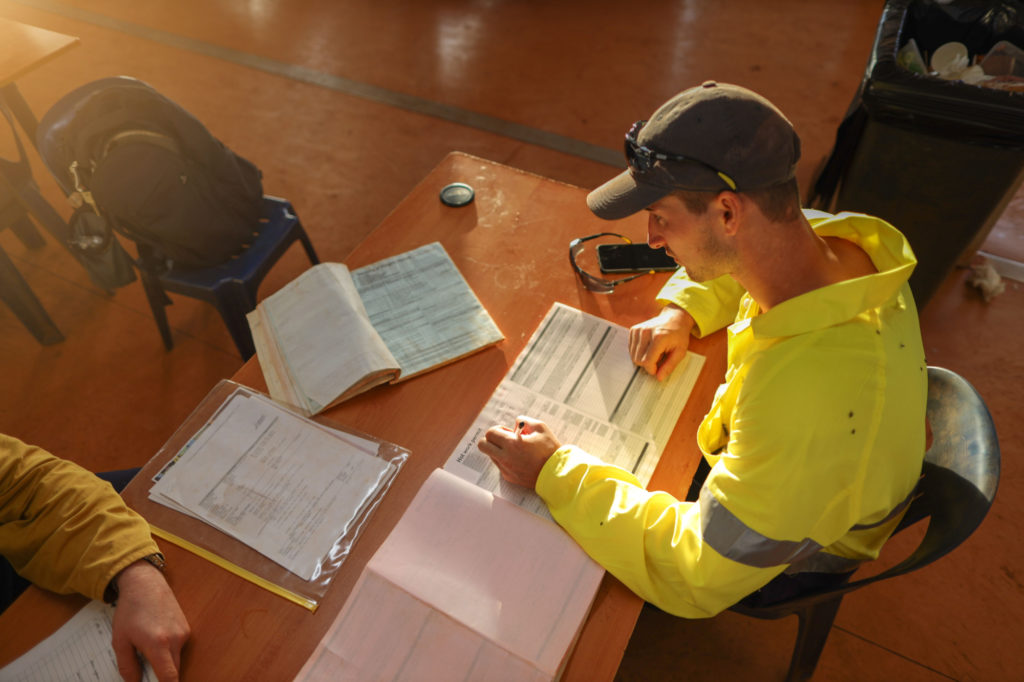Fundraising events
Overview
- Introduction
- Planning a Fundraising Event
- Event Management
- VAT and Income Tax
- Promotion
- Further Guidance
Introduction
Events are very public forms of fundraising and can be valuable opportunities for raising your charity’s profile as well as raising money.
Although fundraising events do not often provide most organisations’ largest sources of income, they can form a valuable part of your fundraising strategy and income mix and create non- financial benefits or can lead to other indirect opportunities.
The key elements of successful fundraising events are good organisation, effective promotion and above all, imagination. The fundamental purpose is to offer an enjoyable experience in return for the participants’ money; if everyone enjoys the event, they are likely to give more and support future events.
Events are a popular way of raising funds, the two main types of events are mass participation sponsored events or ticketed events, and they can be any size or complexity. The most common charity events include:
- Sporting or activity events
- Music and cultural events
- Balls, dinners, auctions and other entertainment events
- Exhibitions, festivals and fairs
This information sheet will focus on ticketed events. Mass participation sponsored events (especially sporting ones such as running events, walks, swims etc require more specific health and safety considerations such as first aid presence, road closures, Council approval etc).
Objectives
Having conducted the appropriate research (including identifying what resources you have available for your fundraising activities) and concluded that you want to hold a fundraising event, you must be clear what the objectives of the event are so that you can decide what to do to achieve these aims. Is the aim simply to raise money or to attract media attention, to thank supporters or to entice new people to support your charity (it may be more than one of these)?
Pros and Cons
- Events can offer considerable benefits such as:
- Raising income.
- Raising public awareness of issues and attracting media publicity.
- The opportunity to attract larger donors or celebrities as well as thanking supporters and volunteers with an enjoyable event.
Conversely, event management can be very absorbing and there is a high-risk factor. Initial investment can be high (e.g. room hire, catering, permits etc) and there is always the possibility that the return is very low if the event has not been adequately planned and publicised.

Planning a Fundraising Event
The first step in planning an event is to establish what the event objectives are and ensure that the activity fits within the organisation’s charitable objectives.
Then, conduct appropriate research; what similar events are already being hosted by other charities in the same area, is there a gap in the events market, who are your target audience (and why)?
The event should be appropriate to the target audience and consideration of the potential group size and what fundraising activities might be attractive to the target group should be considered. You may also require a permit from the Local Authority for events such as fun runs.
Potential benefits should be analysed, and the approximate returns on investment should be forecasted with predicted break-even points. For example would the time and effort in running an event be better spent developing another funding stream? How significant are the non-financial benefits of running the event?
A clear budget needs to be established, ensuring that all potential costs are included. If your event is unlikely to break even, you should really consider if the non-financial benefits of running the event are enough to make the event worthwhile.
Decide the elements which will be critical to the success of the event and how these will be secured and consider the potential risk to the organisation’s reputation that may arise from being involved with particular events, associated companies and if the event goes wrong.
Ensure that support is provided by all relevant staff, managers and trustees and consider the timing.
Planning Tip
If the return on investment/profit for your event is looking low, consider asking the event suppliers or other business if they would sponsor particular aspects of the event to reduce costs e.g. could a local brewery provide some or all of the drinks in return for an advert in the event programme.
If the event is being organised by a third party; consider what policies you have in place to manage and promote this.
Whatever the nature of the event, there are five principal groups of people to include or think about within the event planning.
These are:
- The Audience; people may want to attend as they want to participate or because they wish to support charity. Consider how the event can be made inclusive so as not to exclude individuals.
- The Volunteers; you may have a committee planning the event or be relying on a team of volunteers to help deliver the event. How will you recruit and support the volunteers. Can you guarantee you will get enough to safely run the event?
- The Sponsors; businesses can support the event to help meet their own objectives. What are you able to offer a sponsor; will they sponsor the whole event ort a specific element?
- The Performers; these are central to the event itself. Are they to be paid, are they volunteers e.g. host, auctioneer, football team, DJ
- The Media; the media are in the business to report events such as fundraising events. How will you used media in the build-up, during the event, and to report on its success. Also think how social media can be most effectively used
Make sure that you take time to thank all these people either during or after the event (publicly or privately as appropriate).
Risk Assessment
You should also undertake a risk assessment for the event. This should clearly identify the key risk, what action has been taken to mitigate them and who is responsible. There are many good examples available from an online search that have been produced by large national charities.

Event Management
There are three approaches to managing an event, and for each, ensure that enough time has been set aside for planning and recruitment of support:
- Managing the event from within your organisation will use a significant amount of time, though the experience will provide valuable skills which can benefit the organisation in future. If you plan the event yourself, undertaking a review of the process and how it can be improved for a future event will create a valuable resource for the organisation.
- A professional event planner or event management company is likely to charge a fee for organising the day to day planning or may wish to take a proportion of the ticket price. If the latter is the case, they become a ‘professional fundraiser’ under the Charities Act and certain requirements will need to be met to comply with the Act.
- Establish a committee of volunteers with a variety of skills. It would be advisable to select a chair with previous experience of managing an event; the chair can then delegate tasks to committee members with the appropriate skills, such as an accountant to advise on budgetary issues. Consider the event’s audience when choosing your committee. If the event is targeted at local businesses, then a committee from within those business networks will be able to attract their peers to attend and perhaps sponsor the event/donate raffle prizes etc. Even if run by volunteers some staff input will more than likely be necessary.
Four Important Aspects of Successful Management:
An accurate budget will show how many people are expected as a high and low estimate, including the price of each ticket. The budget will make an early assessment of all likely costs and sources of income including contingency funds.
The more time made available to plan the event, the higher the likelihood of success.
Legally binding contracts signed by both parties, are essential, and where larger sums of money are involved, it is advisable to consult a lawyer.
Good administration and record keeping will help build experience year on year. Keep records of everything from insurance certificates to receipts, as this will help make future events easier.
VAT and Income Tax
Tax is not payable on donations given freely to charity. However, the sale of tickets to the public is considered trading rather than fundraising and may be liable for tax. Ticket prices may be split into two elements; a reasonable price for attending an event and a donation. If the wording is clear that
the donation element is optional, then only the attendance price would be treated as taxable income for VAT purposes.
For example:
Your ticket includes a £20 optional donation to help us continue our vital work in the community. If you prefer not to donate at this time, you can adjust the donation amount below. Thank you for your support, every contribution makes a difference!
There is a concession (ESCC4) for those organising occasional events which allows the income to be treated as donations and free of tax.
Information
For further information, see the HM Revenue & Customs publication Trading and business activities.
Promotion
A real advantage of a successful event is the ability to build a (GDPR friendly) list of contacts for future events. Decide who the target market is for your event, the best ways to reach them, and consider how to attract new audiences.
Examples of promotional techniques:
- Involve the local radio station, offer free tickets as prizes and invite reporters to cover the event. When inviting them, ensure to tell them the story behind the event and why you’re raising money rather than just inviting them to a dinner (for example).
- Advertise in local press/websites, radio and any other targeted media.
- Feature celebrities (local or “proper”) whenever possible; either to compère, to perform or simply to announce the raffle. Make sure that they use their own platforms to promote the event.
- Give free tickets through local groups and networks such as school groups or the local Hospital to create interest.
- Use social media – connect in with any networks local to where your event is taking place or relevant to your cause. Tag local and relevant ‘influencers’ and community leaders and ask them to share the event.
- Create clear and eye-catching leaflets, posters online images and display in as many public places as possible. (Use images to reflect the audience you hope to attract)
NB: make sure to budget for free ticket allowances so that it doesn’t affect your overall income.
Reducing the Risk
Even with accurate budgeting, planning and marketing, some events don’t go according to plan, however there are ways of reducing these risks:
- Ask a sponsor (or sponsors) to cover all running costs so that 100% of ticket sales go to the charity.
- Arranging a committee of supporters who are responsible for selling a percentage of the tickets to guarantee a minimum attendance.
- Get as much of the equipment, furniture, venue, catering etc donated, lent or sponsored to reduce overall costs.
- Insurance; if you are holding a public event you should make sure that you or the venue are insured for public liability. It may be also possible to insure against theft, damage and even against bad weather. It is worth double checking with your insurer that your event will be covered in case there is any small print of exclusions you may have missed.
Making the Most of the Opportunity
Fundraising within a fundraising event can provide additional income for your organisation. Pay-to-enter games, raffles and auctions can be a great way to make additional income during your event. If you have individual giving or legacy schemes, make sure attendees are given the opportunity to sign up if they want to support your cause beyond the event. You could also advertise any volunteer or trustee vacancies.
You can also use the opportunity to capture information about the attendees for future events and campaigns. If you do this, make sure that your sign-up sheets are GDPR compliant and get the right permissions.
Further Guidance
Further guidance on statutory and regulatory matters can be obtained from the following organisations:

